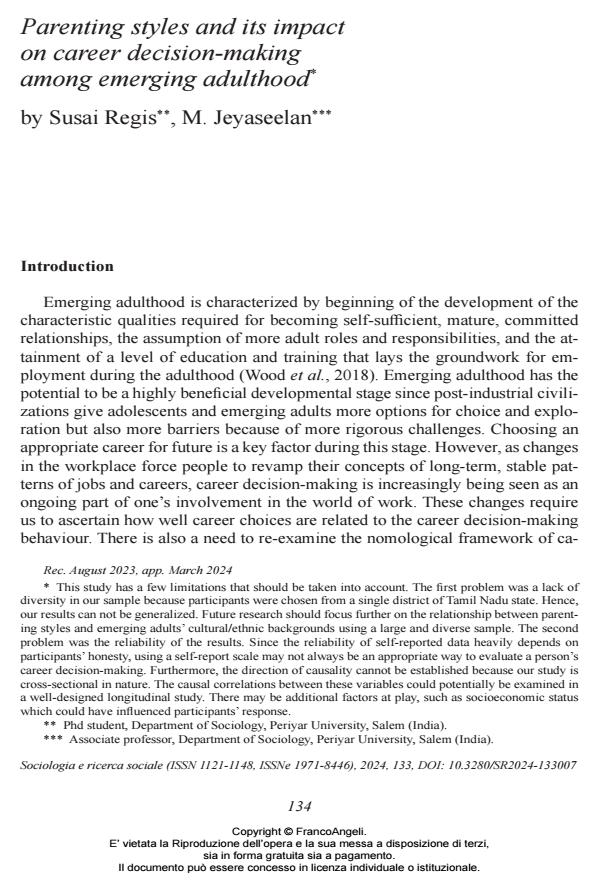Parenting styles and its impact on career decision-making among emerging adulthood
Titolo Rivista SOCIOLOGIA E RICERCA SOCIALE
Autori/Curatori Susai Regis, M. Jeyaseelan
Anno di pubblicazione 2024 Fascicolo 2024/133
Lingua Inglese Numero pagine 14 P. 134-147 Dimensione file 206 KB
DOI 10.3280/SR2024-133007
Il DOI è il codice a barre della proprietà intellettuale: per saperne di più
clicca qui
Qui sotto puoi vedere in anteprima la prima pagina di questo articolo.
Se questo articolo ti interessa, lo puoi acquistare (e scaricare in formato pdf) seguendo le facili indicazioni per acquistare il download credit. Acquista Download Credits per scaricare questo Articolo in formato PDF

FrancoAngeli è membro della Publishers International Linking Association, Inc (PILA), associazione indipendente e non profit per facilitare (attraverso i servizi tecnologici implementati da CrossRef.org) l’accesso degli studiosi ai contenuti digitali nelle pubblicazioni professionali e scientifiche.
Emerging adulthood is characterized by the need to make significant life choices. These life choices have their roots in historical and sociological circumstances. More recently, academicians have started to investigate how parenting styles may affect factors related to career decision-making, such as career decidedness. This study was conducted to explore the role of parenting style on career decision-making among emerging adults. 350 college students from different colleges in Tiruvannamalai city were selected through stratified random sampling and the data was collected with the help of the Parental authority questionnaire by Buri (1991); Career decision-making inventory by Singh (2014). Results revealed that the authoritative parenting style was positively associated with career decidedness and negatively associated with career indecision of career decision-making. Whereas authoritarian parenting style had a significant positive association with career indecision and a negative association with career decidedness. Furthermore, there was a significant gender difference in career decision-making among emerging adults.
Susai Regis, M. Jeyaseelan, Parenting styles and its impact on career decision-making among emerging adulthood in "SOCIOLOGIA E RICERCA SOCIALE " 133/2024, pp 134-147, DOI: 10.3280/SR2024-133007